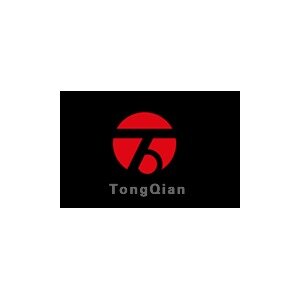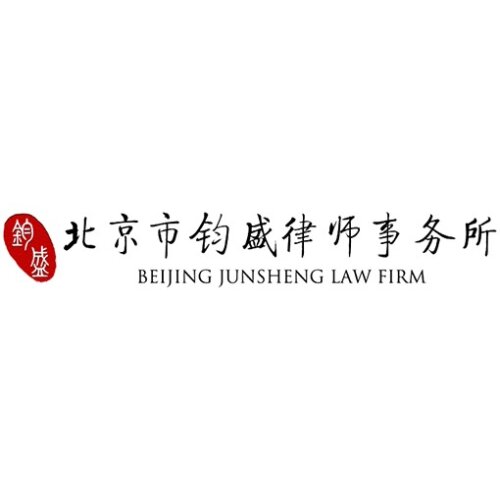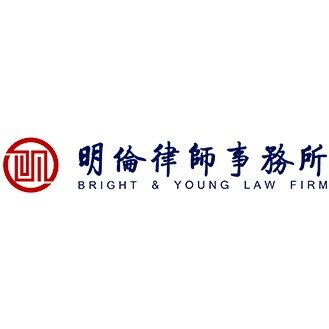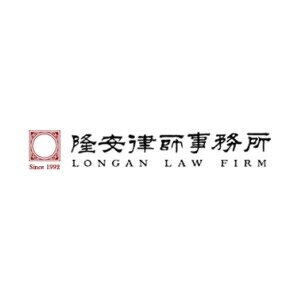Best Hiring & Firing Lawyers in China
Share your needs with us, get contacted by law firms.
Free. Takes 2 min.
Or refine your search by selecting a city:
List of the best lawyers in China
About Hiring & Firing Law in China
Hiring and Firing laws in China are primarily governed by the Labor Contract Law, along with various regulations and local guidelines. The objective of these laws is to create a balanced relationship between employees and employers while ensuring fair practices and legal obligations are maintained by both parties. The legal framework covers aspects such as employment contracts, employee benefits, working hours, workplace safety, and procedures for terminating employment. As these laws can be complex and nuanced, understanding your rights and responsibilities is crucial when engaging in employment relationships in China.
Why You May Need a Lawyer
There are several situations where you might require legal assistance related to Hiring & Firing in China. These include:
- Drafting or reviewing an employment contract to ensure compliance with Chinese labor laws.
- Navigating complex regulations when terminating an employee, especially if the employee is contesting the termination.
- Understanding and applying anti-discrimination laws during the hiring process.
- Resolving disputes over wages, benefits, or workplace conditions.
- Handling layoffs or mass redundancies in accordance with legal requirements.
- Addressing allegations of wrongful dismissal or unfair treatment.
Local Laws Overview
Key aspects of local laws relevant to Hiring & Firing in China include:
- Employment Contracts: Employers are required to provide written contracts within a month of hiring. The contract should specify terms of employment, job description, salary, and other conditions.
- Probation Periods: These are allowed but must align with legal stipulations regarding duration and conditions.
- Termination Procedures: Employers must adhere to strict guidelines and provide valid reasons for terminating an employee.
- Notice Periods: Generally, a 30-day notice or payment in lieu of notice is required unless dismissal is due to severe misconduct.
- Severance Pay: Employees with at least one year’s service are entitled to severance pay upon termination, calculated based on years of service and wages.
- Dispute Resolution: Labor disputes are typically resolved through mediation, arbitration, or litigation, with mediation encouraged as the first step.
Frequently Asked Questions
1. What is the typical length of a probation period in China?
Probation periods can range from one to six months, depending on the length of the employment contract.
2. Can an employee be dismissed immediately for misconduct?
Yes, immediate dismissal is allowed for serious misconduct, but it must be justified with evidence and proper procedure.
3. Are employers required to provide reasons for termination?
Yes, employers must provide legitimate reasons for dismissal, supported by evidence, and follow legal procedures.
4. What should be included in an employment contract?
The contract should include job role, working hours, salary, benefits, termination conditions, and any other agreed terms.
5. Are non-compete agreements enforceable in China?
Yes, but they must be reasonable in terms of duration, scope, and compensation for the employee during the non-compete period.
6. What recourse does an employee have for wrongful termination?
Employees can file a complaint with labor authorities or seek arbitration/litigation if they believe they were wrongfully terminated.
7. What is the role of labor unions in China?
Labor unions mainly focus on protecting employee rights and interests, and they play a role in collective bargaining and dispute resolution.
8. How is severance pay calculated?
Severance pay is typically one month’s salary for each year of service, but there are limits based on local standards.
9. Are there specific laws regarding discrimination in hiring?
Yes, Chinese law prohibits discrimination based on ethnicity, race, gender, religion, and other legally protected categories.
10. What support exists for expat employees in China?
Expat employees can seek assistance from their embassies, local expat communities, and legal experts familiar with employment laws in China.
Additional Resources
For further assistance, consider consulting the following resources:
- The Ministry of Human Resources and Social Security of the People's Republic of China offers guidance and resources on labor laws.
- The All-China Federation of Trade Unions provides support regarding workers' rights and collective bargaining.
- Professional legal services and firms specializing in employment law can provide personalized advice and representation.
Next Steps
If you require legal assistance regarding Hiring & Firing in China, consider taking the following steps:
- Contact a legal professional with experience in Chinese employment law to discuss your specific situation.
- Compile all relevant documents and information about your employment situation to provide a comprehensive view to your lawyer.
- Explore options for alternative dispute resolution such as mediation before resorting to formal legal processes.
- Stay updated with local employment laws to ensure compliance and protect your rights within the employment relationship.
Lawzana helps you find the best lawyers and law firms in China through a curated and pre-screened list of qualified legal professionals. Our platform offers rankings and detailed profiles of attorneys and law firms, allowing you to compare based on practice areas, including Hiring & Firing, experience, and client feedback.
Each profile includes a description of the firm's areas of practice, client reviews, team members and partners, year of establishment, spoken languages, office locations, contact information, social media presence, and any published articles or resources. Most firms on our platform speak English and are experienced in both local and international legal matters.
Get a quote from top-rated law firms in China — quickly, securely, and without unnecessary hassle.
Disclaimer:
The information provided on this page is for general informational purposes only and does not constitute legal advice. While we strive to ensure the accuracy and relevance of the content, legal information may change over time, and interpretations of the law can vary. You should always consult with a qualified legal professional for advice specific to your situation.
We disclaim all liability for actions taken or not taken based on the content of this page. If you believe any information is incorrect or outdated, please contact us, and we will review and update it where appropriate.
Browse hiring & firing law firms by city in China
Refine your search by selecting a city.















